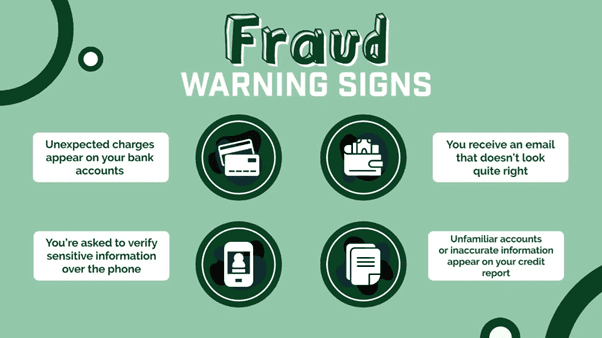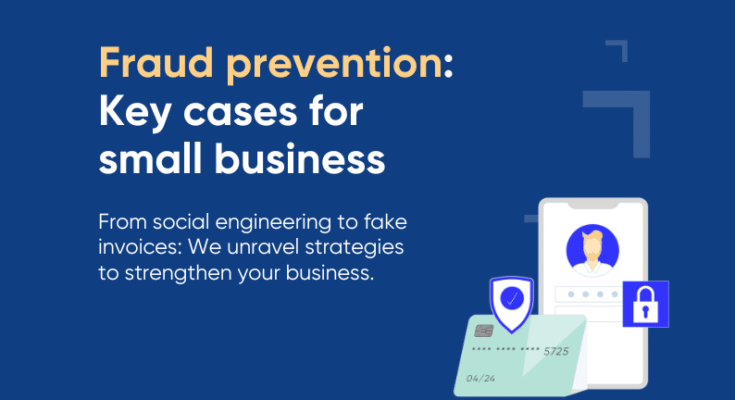Small businesses are especially vulnerable to fraud due to limited resources, fewer internal controls, and a lack of dedicated fraud prevention teams. From employee theft to cyberattacks, fraud can cause devastating financial losses and reputational damage. However, with the right strategies in place, small businesses can significantly reduce their risk and strengthen their defenses.
This guide provides practical fraud prevention tips tailored specifically for small business owners and managers. Whether you’re just starting or looking to improve your existing measures, the following information will help safeguard your business from potential threats.
Understanding Fraud in Small Businesses
What is Fraud?

Fraud is an intentional act of deception for personal or financial gain. In a business context, this could include employee theft, false billing, data breaches, cyber scams, and more.
Why Small Businesses Are Targeted
- Fewer security systems in place
- Lack of fraud training and awareness
- Trust-based environments with limited oversight
- Reliance on one or two individuals for financial tasks
Fraud can go undetected for months or even years in small businesses, making early prevention and detection critical.
Common Types of Fraud Small Businesses Face
Internal Fraud
This involves employees misusing company resources or manipulating financial records for personal gain.
Examples:
- Payroll fraud
- Inventory theft
- Misuse of company credit cards
External Fraud
This type of fraud is committed by outside individuals or groups targeting your business.
Examples:
- Phishing scams
- Vendor fraud
- Fake invoices
Cyber Fraud
Cybercriminals exploit online systems to access sensitive data or finances.
Examples:
- Email spoofing
- Ransomware attacks
- Data breaches
Warning Signs of Fraud in Your Business

Recognizing the red flags early can save your business from significant losses.
- Unexplained financial discrepancies
- Unusually close relationships with vendors
- Resistance to sharing financial duties
- Missing documents or altered records
- A sudden change in employee behavior
Encourage your team to speak up if they notice anything suspicious.
Practical Tips for Fraud Prevention
1. Separate Financial Duties
No single employee should be responsible for all financial transactions. Divide tasks like invoicing, check signing, and bookkeeping among different people to create checks and balances.
2. Conduct Background Checks
Before hiring new employees, especially those in financial roles, perform background checks. This can help identify past fraud or criminal behavior.
3. Implement Strong Password Policies
Use strong, unique passwords for all systems and change them regularly. Encourage two-factor authentication wherever possible.
4. Train Employees on Fraud Awareness
Offer regular training on how to identify phishing emails, suspicious behavior, and other fraud risks. Educated employees are your first line of defense.
5. Monitor Bank Accounts and Transactions
Regularly review bank statements, credit card usage, and petty cash to spot unauthorized transactions. Use online banking alerts to stay updated in real time.
6. Set Up Internal Controls
Internal controls like approval processes, audits, and access restrictions help reduce the risk of fraud.
Examples:
- Require dual signatures on large payments
- Limit access to sensitive data
- Perform surprise audits
7. Secure Your Digital Assets

Install firewalls, antivirus software, and data encryption tools. Ensure your systems are updated with the latest security patches.
8. Verify Vendors and Invoices
Only work with verified vendors and double-check all invoices for authenticity. Keep an eye out for duplicate invoices or payments to unfamiliar accounts.
9. Create a Whistleblower Policy
Encourage employees to report unethical behavior without fear of retaliation. An anonymous tip line or suggestion box can be effective.
10. Review Your Insurance Coverage
Look into policies that cover fraud and cybercrime. Business insurance can provide financial protection if fraud does occur.
The Role of Technology in Fraud Prevention
Accounting Software with Built-in Controls
Modern accounting tools offer features like activity logs, user roles, and automatic alerts that help you detect unusual activity early.
POS (Point-of-Sale) System Monitoring
Track sales, returns, and refunds through POS systems that generate detailed reports and highlight anomalies.
Cybersecurity Tools
Invest in anti-malware programs, secure cloud storage, and data backup solutions. Use VPNs when accessing business information remotely.
Building a Fraud-Resistant Company Culture

Promote Transparency
Keep communication open and make sure employees understand company policies and their roles in maintaining integrity.
Lead by Example
Business owners and managers should model ethical behavior. Employees are more likely to follow rules when leadership does too.
Conduct Regular Reviews
Review business practices and update policies as needed. Keep up with evolving fraud techniques and trends.
What to Do If Your Business Is a Victim of Fraud
- Act quickly to contain the situation
- Notify your bank and freeze relevant accounts
- Document everything
- Report the fraud to local authorities and relevant institutions
- Inform affected stakeholders, if necessary
- Conduct a post-incident review to improve prevention
Also Read : How Do You File An Insurance Claims?
Conclusion
Fraud prevention is not a one-time task—it’s an ongoing process that requires awareness, planning, and action. Small businesses may have limited resources, but that doesn’t mean they have to be vulnerable. With smart policies, vigilant employees, and the right technology, small business owners can build a strong line of defense against fraud. Protecting your business starts with taking proactive steps today.
FAQs
What is the most common type of fraud in small businesses?
Employee theft and accounting fraud are among the most common types, especially in businesses with limited oversight.
How can I protect my business from fraud?
Implement internal controls, train your employees, separate financial duties, and use secure digital tools to monitor activity.
Should I invest in fraud insurance?
Yes, fraud insurance can provide financial compensation in case your business suffers losses due to fraud or cybercrime.
How often should I audit my business?
At least once a year, but surprise audits throughout the year are also effective at deterring fraudulent behavior.
Can small businesses afford fraud prevention tools?
Many affordable and even free tools are available to help small businesses protect against fraud, including accounting software and cybersecurity apps.

